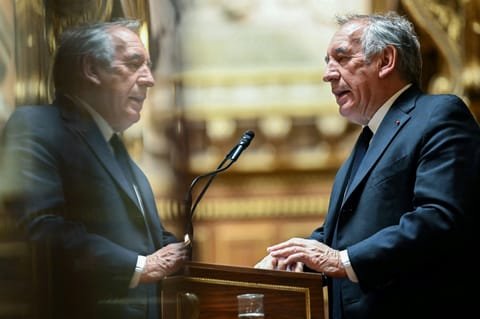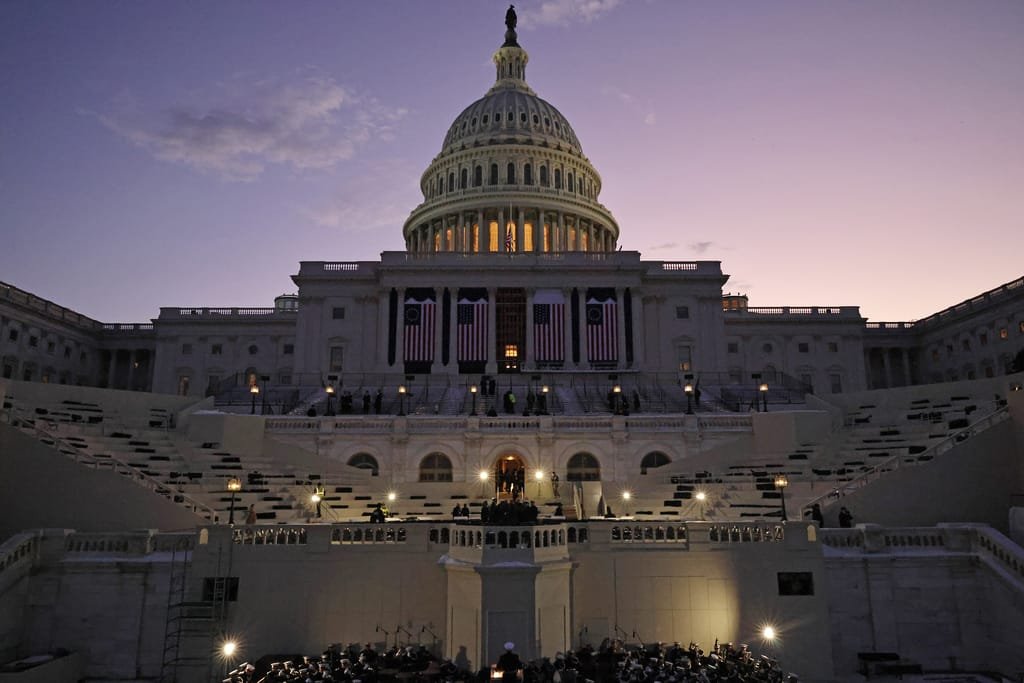The fledgling Paris government is “trying their best” to get a budget through parliament after a previous version sunk its predecessor.

BRUSSELS ― Not for the first time when it comes to France’s rocky public finances, the European Union is staying chill.
While nobody is saying much publicly, behind the scenes the bloc appears to be broadly supportive of new Prime Minister François Bayrou’s efforts to get his austerity budget through parliament, even though it’s a scaled-back version of the drastic plan France previously agreed with the European Commission that ended up crashing the government last year.
The new version — a €53 billion combination of spending cuts and tax increases aimed at bringing order to France’s increasingly haywire public finances, and, with it, a potential dilution of planned pension reforms — “is not a red alarm in any capitals,” one EU diplomat told POLITICO.
Policymakers in Bayrou’s fledgling government, the diplomat said, are “trying their best.”
For now, that will probably afford Bayrou the time he needs to win enough of France’s angry and divided parliament to his side.
It’s a far cry from the doom-ladenlanguage that can accompany the failures of smaller countries to live up to EU demands to reduce debt. But, as critics of the EU’s efforts to keep member-government spending in order have said for years, it’s one thing to dole out harsh punishments to smaller countries like Greece and Portugal, and quite another to take on giants like France.
The Commission, which runs the rule over every country’s budget, backed the tax-and-slash shock therapy pursued by former French Prime Minister Michel Barnier, calling it “ambitious.” But before he hit the 100-day mark in office, the left and right in France’s deeply-divided parliament — both disgruntled by the budget plan — united to vote Barnier out.
Now Bayrou, a centrist ally of increasingly unpopular President Emmanuel Macron, is proposing to dilute Barnier’s unpalatable medicine.
Biggest cuts in 25 years
Bayrou’s plan “should be fine,” said another EU diplomat. “What the French presented [earlier] was stricter than what was required.”
The new script still means reducing the country’s deficit ― the gap between public revenues and expenditures — from a whopping 6.2 percent of GDP to 5.4 percent, by cutting public spending in 2025 by €32 billion and increasing taxes by €21 billion.

“It’s the biggest spending reduction effort in the last 25 years,” Budget Minister Amélie de Montchalin said on Wednesday as she detailed the measures in an interview with French broadcaster TF1.
Bayrou also promised to launch a consultation process that could, in theory, ultimately change the most contentious aspect of Macron’s agenda: increasing the pension age from 62 to 64.
While dangling a possible tweak to the pension reform might buy Bayrou time politically — particularly with the Socialist Party, whose votes he needs — European officials are still concerned about the longer-term impact on public finances. Bayrou has already said that if employers and trade unions cannot agree on a deal within three months, the plan that brought Macron so much opposition when he announced it in 2023 will go ahead.
In the end, Bayrou’s pension consultation may change little. “There will be talks on modifications, with social partners, and we know that Medef [a lobby group for French employers] is a big supporter of pension reforms,” one of the diplomats quoted above said. “They may agree to make some changes, more favorable for some groups of people. One could imagine a few tweaks but not a big impact.”
Compliance with EU rules
EU governments are waiting to learn the exact details of the planned changes to the budget from new French Finance Minister Eric Lombard.
“From our perspective, what is important is compliance with the EU rules and [understanding] what the changes will be,” said a diplomat from an EU country.
France plans to send amendments to the annual budget bill and to the broader seven-year fiscal plan, both already approved by the Commission but now out of date, a French government official told POLITICO.
But that’s unlikely to happen by Jan. 21, when EU finance ministers meet and are supposed to back the Commission’s assessment.
“France has not formally notified the Commission of anything yet,” said Commission spokesperson Balazs Ujvari.
“It’s up to the Council [made up of finance ministers from the 27 EU-member governments] to decide on the timeline for the adoption of the recommendations.”




